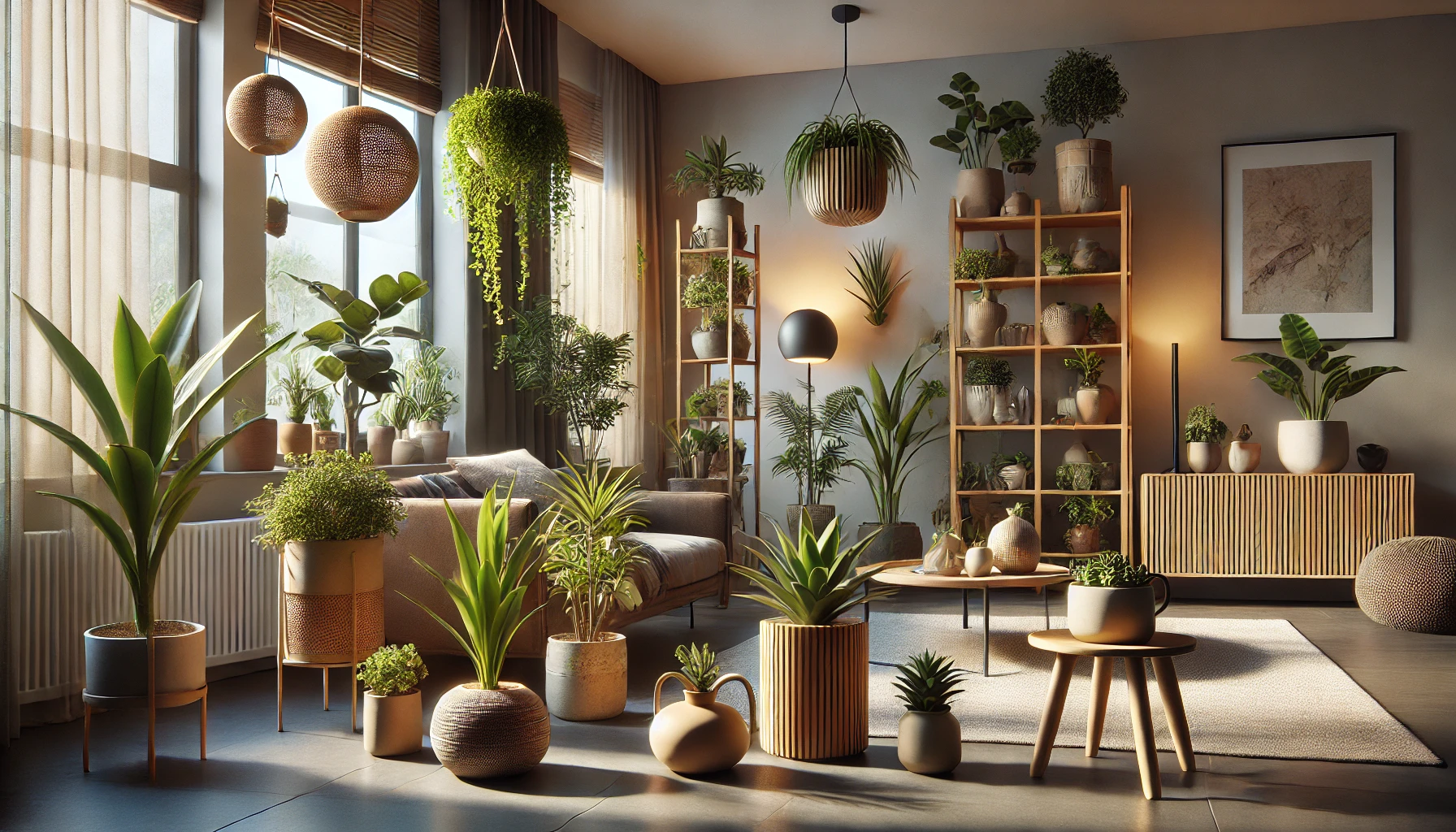Caring for plants is an activity that brings numerous benefits, from improving air quality to contributing to emotional well-being. To ensure your plants are always healthy and beautiful, it’s essential to adopt specific care routines. Here are 10 essential tips for taking care of your houseplants.
1. Choose the Right Plants for Your Space
Each plant has specific needs regarding light, temperature, and humidity. Before choosing a plant, observe the location where it will be placed. Brightly lit areas are ideal for plants like succulents, while shadier spots are better suited for species like the peace lily and snake plant.
2. Understand Proper Watering Techniques
The most common mistake in plant care is overwatering or forgetting to water. Follow these tips:
- Check the soil with your finger: if it feels dry, it’s time to water.
- Use a spray bottle for small or delicate plants.
- Avoid letting water accumulate in saucers under pots, as this can cause root rot.
3. Use Pots with Proper Drainage
Choosing the right pot is crucial. Opt for pots with drainage holes to ensure excess water flows out. This helps prevent water from sitting at the bottom, which can harm the roots.
4. Use the Right Soil
The type of soil can make all the difference. Some plants, like cacti, prefer sandy soils, while ornamental plants thrive in soil rich in organic matter. Investing in quality soil is an essential step.
5. Position Your Plants Strategically
Light is crucial for photosynthesis. Place plants that require a lot of light near windows. Plants that prefer shade can be positioned on shelves or in less illuminated corners.
6. Fertilize Regularly
Fertilizers provide essential nutrients for healthy plant growth. Use organic or chemical fertilizers according to the manufacturer’s instructions. A good practice is to fertilize every two weeks during spring and summer when growth is more active.
7. Clean the Leaves
Dust accumulated on leaves can hinder light absorption. Use a damp cloth to clean the leaves regularly, especially on large plants like pothos and philodendrons.
8. Watch for Signs of Problems
Be alert to signs that something may be wrong:
- Yellowing leaves indicate overwatering.
- Dry or wilted leaves could result from under-watering or insufficient light.
- Spots on leaves might be caused by pests or fungi.
9. Control Pests and Diseases
To prevent pests like aphids and mealybugs, inspect your plants weekly. If you spot a problem, use natural solutions like neem oil or specific pest control products.
10. Love Your Plants
Finally, treat your plants with care. Taking care of them is not only beneficial for their health but also for yours. Studies show that gardening reduces stress and increases happiness.
Bonus Tip: Use the Right Tools
Investing in simple tools like small shovels, spray bottles, and pruning scissors makes daily plant care much easier.
Cultivating plants is more than just a hobby; it’s a way to connect with nature. With these tips, your plants will have everything they need to thrive and bring life and beauty to your home.

